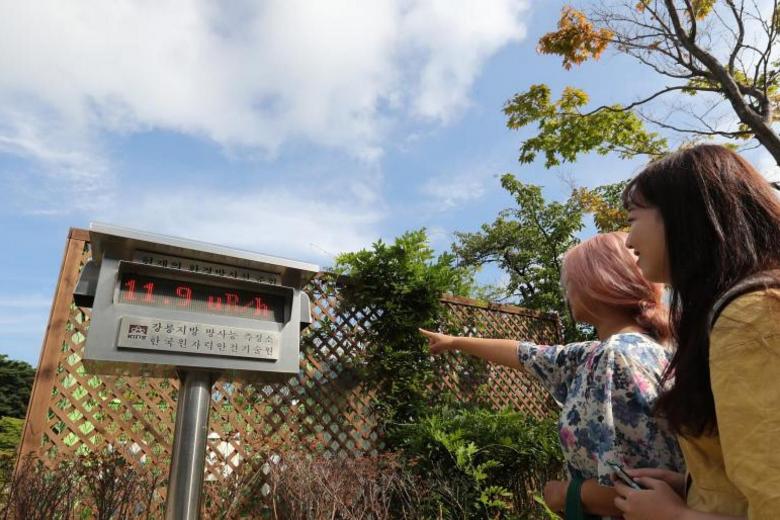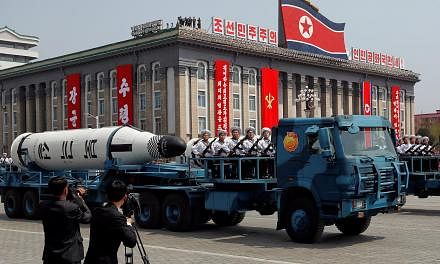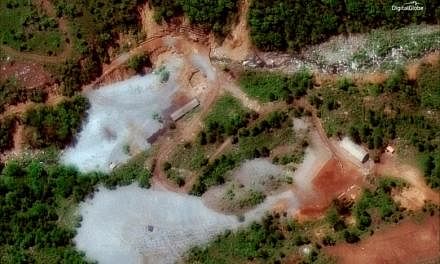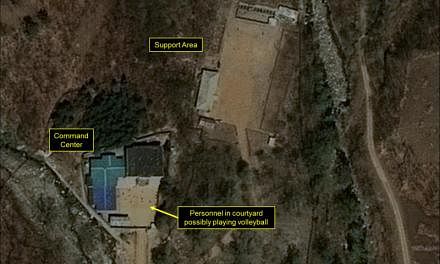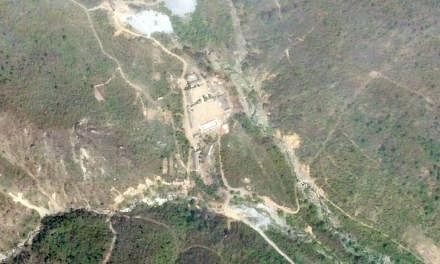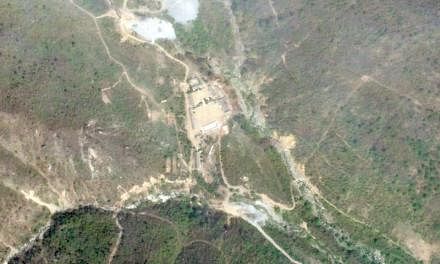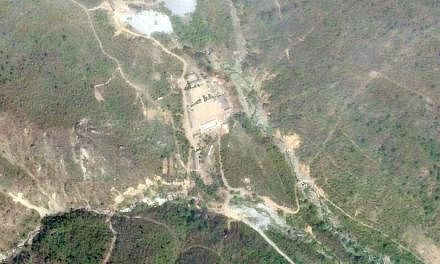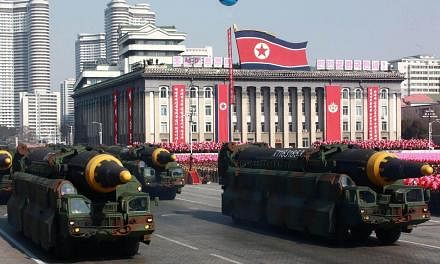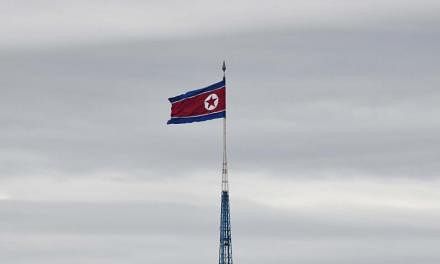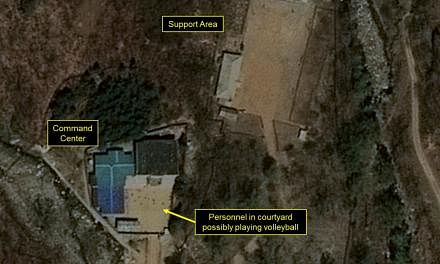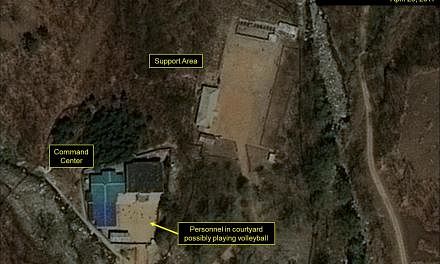BEIJING (AFP) - China has concluded that radiation levels remain normal in provinces near the North Korean border after Pyongyang's most powerful nuclear test yet spurred concerns of residual environmental damage.
The Ministry of Environmental Protection announced on Sunday (Sept 10) it was ending its emergency radiation monitoring in response to the blast last week, which the North claimed was the successful detonation of a hydrogen bomb.
"A comprehensive assessment has concluded that this DPRK nuclear test has caused no environmental impact on China," the ministry said in a statement posted on its website, using the initials of the North's official name.
"After eight days of continuous monitoring, no abnormal results were shown."
More than 1,000 aerosol, air, iodine, water and sediment samples were taken at monitoring stations in north-east Heilongjiang, Jilin and Liaoning provinces as well as in eastern Shandong province, according to the ministry.
The explosion from the most recent nuclear test, the North's sixth, was considerably larger than previous tests and was felt by residents in Chinese cities hundreds of kilometres from the border.
Japan also said last Monday that it had not detected any atmospheric radiation in monitoring posts across the country.
